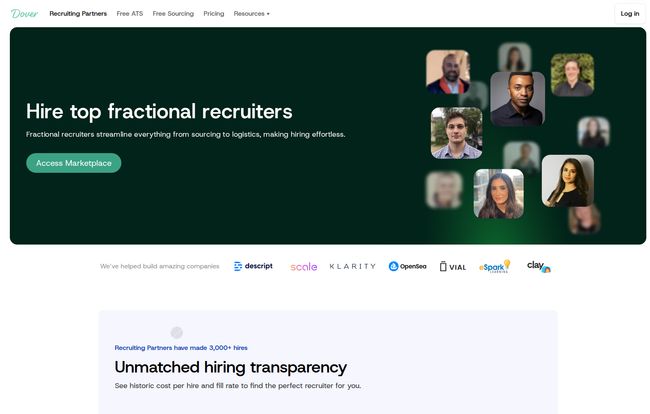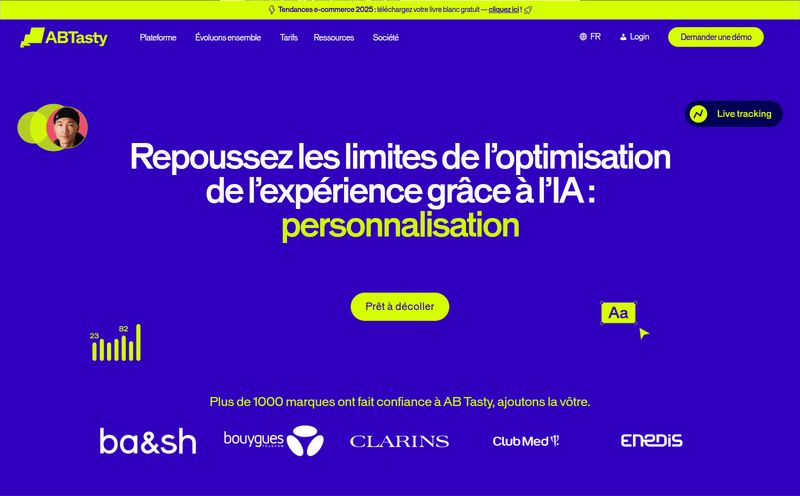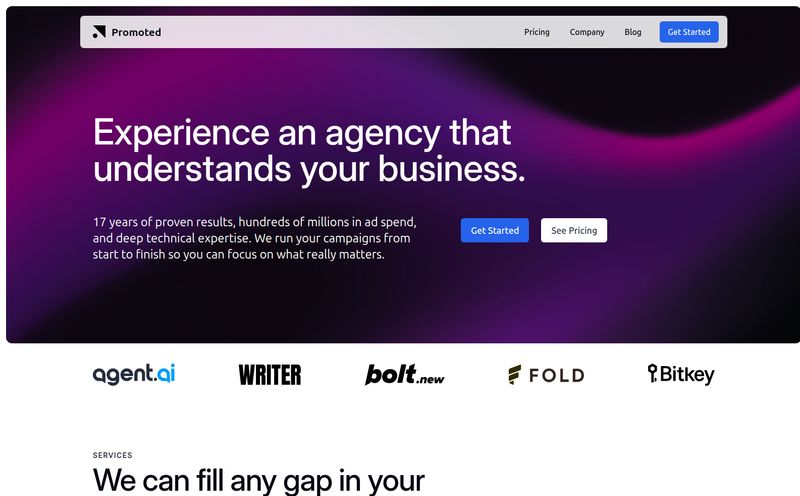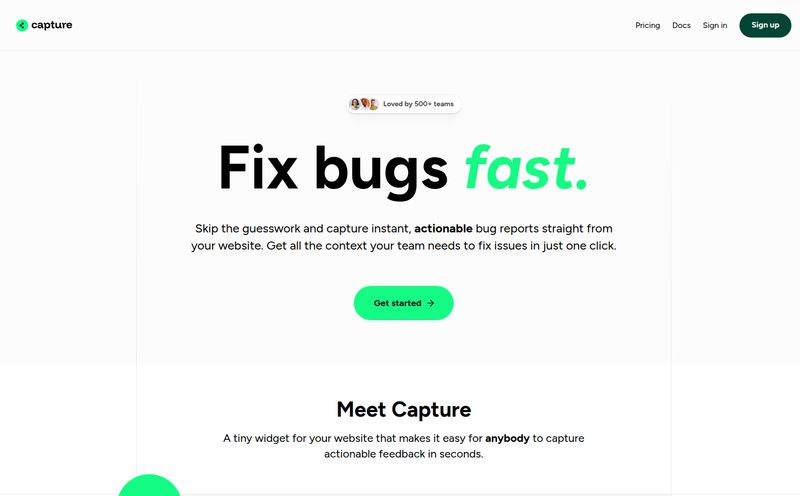If you're running or working at a startup, you know the single biggest bottleneck to growth isn't funding, it isn't product-market fit (once you have it), it's people. Finding the right people is an absolute grind. It’s a full-time job on top of your actual full-time job. You're either drowning in a sea of irrelevant LinkedIn profiles or you're paying some recruiting agency a fee that could fund your coffee budget for the next decade.
I've been in the growth and SEO space for years, and I've seen it time and again. A brilliant company with a killer product stalls out because they just can't fill that critical Senior Engineer or Head of Marketing role. The whole process is opaque, expensive, and frankly, demoralizing.
So, when I stumbled upon a platform called Dover, my professional curiosity was definitely piqued. They're making some pretty bold claims about changing the game with fractional recruiters and slick automation. But is it just another tool in a sea of HR tech, or is it something genuinely different? I decided to take a closer look.
What Exactly is Dover? (And Why Should You Care?)
At its core, Dover is a marketplace that connects startups with top-tier, vetted fractional recruiters. Think of it like this: you know how you might hire a fractional CFO or CMO to get senior-level expertise without the full-time salary? Dover applies that exact same logic to recruiting.
This isn't just about farming out a job description. The idea is to embed a high-quality recruiter into your team for a fraction of the time and cost. They work with you, learn your culture, and handle the entire messy process from sourcing candidates to scheduling the final interviews. For a startup that needs to stay nimble, this model immediately makes a lot of sense. You get the A-team without the full-time overhead or the eye-watering fees of a traditional agency.
But the secret sauce, the thing that really makes it interesting, is the layer of technology they've built on top.

Visit Dover
The Standout Features That Caught My Eye
Dover isn't just a list of names in a database. It’s a full-fledged platform designed to make hiring faster and, dare I say, more transparent. A few things really stood out to me.
A Marketplace of Vetted, Fractional Recruiters
The term 'fractional' is key here. You’re not just hiring a task-rabbit; you’re engaging a strategic partner. Dover claims to vet these recruiters heavily, so you’re getting people who have actual experience hiring for roles like yours. This flexibility means you can bring someone in for a specific, hard-to-fill role and then pause the engagement once the position is filled. No long-term contracts, no awkward goodbyes. It's recruiting on-demand.
The Magic of Automated Sourcing
This is where the platform really starts to shine. One of the most soul-crushing parts of recruiting is the initial sourcing—finding qualified people and sending out hundreds of personalized emails. Dover automates a huge chunk of this. Their system helps identify potential candidates across various platforms and handles the initial outreach, freeing up the recruiter (and you) to focus on what matters: talking to interested, qualified people. This is a massive time-saver, turning a multi-week process into something much more manageable.
Radical Transparency in Hiring Metrics
Okay, this is the part that made me sit up and lean in. Traditional recruiting can feel like a black box. You give an agency a role, and weeks later, maybe some candidates appear. You rarely know what's happening behind the scenes or what the real cost looks like until you get a massive invoice.
Dover flips this on its head. Their platform shows you real, historical data on what it cost other companies to hire similar roles using their recruiters. For example, I saw on their site that one company spent around $9,200 with a recruiter named Erica N. to hire a Founding Engineer. Another spent just over $7,000 with Brandon W. to land a Senior Software Engineer. This kind of transparency is almost unheard of and allows you to budget with some degree of confidence. It’s a huge trust signal.
Did Someone Say a FREE Applicant Tracking System (ATS)?
This is the kicker. Tucked away on their pricing page is an offer that's almost too good to be true: a completely free ATS for startups. And it's not some stripped-down, barely-functional version, either. We're talking unlimited jobs, candidate tracking, AI-powered applicant sorting, and job board integrations. For any early-stage startup trying to get its hiring process organized, this is an absolute gift. It’s a fantastic way to get introduced to their ecosystem without spending a dime.
Let's Talk Turkey: The Dover Pricing Model
So, how much does all this cost? Well, it's not a simple SaaS subscription, and that's by design. The ATS, as mentioned, is free. For the main event—the recruiting—it’s a marketplace model. Recruiters on the platform set their own rates.
This means the cost is variable. It depends on the recruiter you choose, their experience, and the complexity of the role you're hiring for. Based on the public data they share, a successful hire seems to land somewhere in the $7k-$10k range. While that's not pocket change, it's often significantly less than the 20-30% of a first-year salary that traditional agencies charge, especially for high-paying tech roles. Plus, the ability to 'pause anytime' adds a layer of cost control that you just don't get with other models.
How Does Dover Stack Up? A Quick Comparison
I found a neat little comparison on their site that I think sums it up well. Compared to a big, old-school recruiting agency, Dover is much faster. They say you can find and ramp up a recruiter in about a week, whereas an agency can take weeks to even get started. And the cost, while not zero, is listed as '$$' compared to the '$$$$' of an agency.
When you look at it next to hiring an in-house recruiter, the main difference is flexibility. With an in-house person, you have a full-time salary and a long-term commitment. With Dover, you can spin up and spin down your recruiting efforts as needed. This is perfect for the fluctuating hiring needs of a growing startup. You get the expertise without the long-term burn.
The Unvarnished Truth: Potential Downsides
No platform is perfect, and it's only fair to look at the other side of the coin. Based on my analysis, there are a few things to keep in mind.
- Cost vs. DIY: Let’s be clear, using Dover is going to cost more hard cash than doing it all yourself. However, this is a classic 'time vs. money' calculation. What is the opportunity cost of a founder or lead engineer spending 15 hours a week on LinkedIn instead of building the product? For many, the trade-off is well worth it.
- External vs. Internal: When you rely on an external recruiter, you might be building less internal knowledge about how to recruit. It’s a trade-off for speed and expertise. For an early-stage company, this is often a smart trade, but it's something to be aware of as you scale.
- Marketplace Variability: Like any marketplace (think Airbnb or Uber), the quality can vary from one provider to the next. Dover's vetting process is designed to prevent this, but your experience will ultimately depend on the specific recruiter you get matched with. Doing your due diligence during that initial intro call is still super important.
Is Dover the Right Move for Your Startup?
So, who is this really for?
In my opinion, Dover is a fantastic fit for early to mid-stage startups (say, Seed to Series B) that need to hire key roles but don't have a dedicated, in-house recruiting team yet. It's for founders and hiring managers who are feeling the pain of slow, inefficient hiring and recognize the value of their own time. If you need to hire a niche role quickly and want a partner rather than just a service provider, this seems like a very compelling option.
It might be less of a fit for a very large enterprise that already has a robust internal talent acquisition department, or a super-early, bootstrapped company where every single penny is being scrutinized and the founders have more time than money.
Final Thoughts on Dover
I'm genuinely impressed with what Dover is building. They've identified one of the most significant pain points for startups and have attacked it with a modern, flexible, and transparent solution. The combination of a fractional talent model with smart automation and a free ATS is a powerful one-two-three punch.
Hiring will probably never be easy, but tools like Dover are making it a whole lot smarter and less painful. If you're stuck in the hiring trenches, it's definitely worth scheduling that free intro call and seeing for yourself.
Frequently Asked Questions about Dover
- How does Dover's fractional recruiter marketplace work?
- You schedule an intro call to discuss your hiring needs. Dover then matches you with a pre-vetted recruiter from their marketplace who has experience with your specific type of role. You work with them directly, and they become an extension of your team.
- Is the pricing really flexible?
- Yes. The pricing is based on the rates set by the individual recruiters in the marketplace. The biggest flexibility comes from your ability to start, stop, or pause your engagement at any time, giving you control over your spending.
- How fast can I actually get started?
- According to Dover, you can be matched with a recruiter and have them fully ramped up in about a week, which is significantly faster than the weeks or months it can take to hire an in-house recruiter or onboard a traditional agency.
- What's the difference between a fractional recruiter and a regular agency?
- A fractional recruiter is more deeply embedded in your team and process, acting like a part-time employee. An agency often works with many clients at once and can be more transactional. The fractional model usually leads to a better understanding of your company culture and a more targeted search.
- Is the Dover ATS really free? What's the catch?
- Yes, it's really free for eligible startups. There doesn't appear to be a catch. It's a fully-featured Applicant Tracking System offered as a standalone product. It's likely a strategy to introduce startups to their ecosystem in hopes that they'll use their paid recruiting marketplace when the need arises.



